A Skeptics Guide to Web5
for those who do not believe in a future with self-ownership, this is for you.
"Nothing on the Internet belongs to you."
When I made this statement at a recent conference I spoke at, I saw the eager faces of the audience, who already looked at me with curiosity recoil. The Gospel of Web5 came with a shocking revelation, and the truth is often hard to swallow.
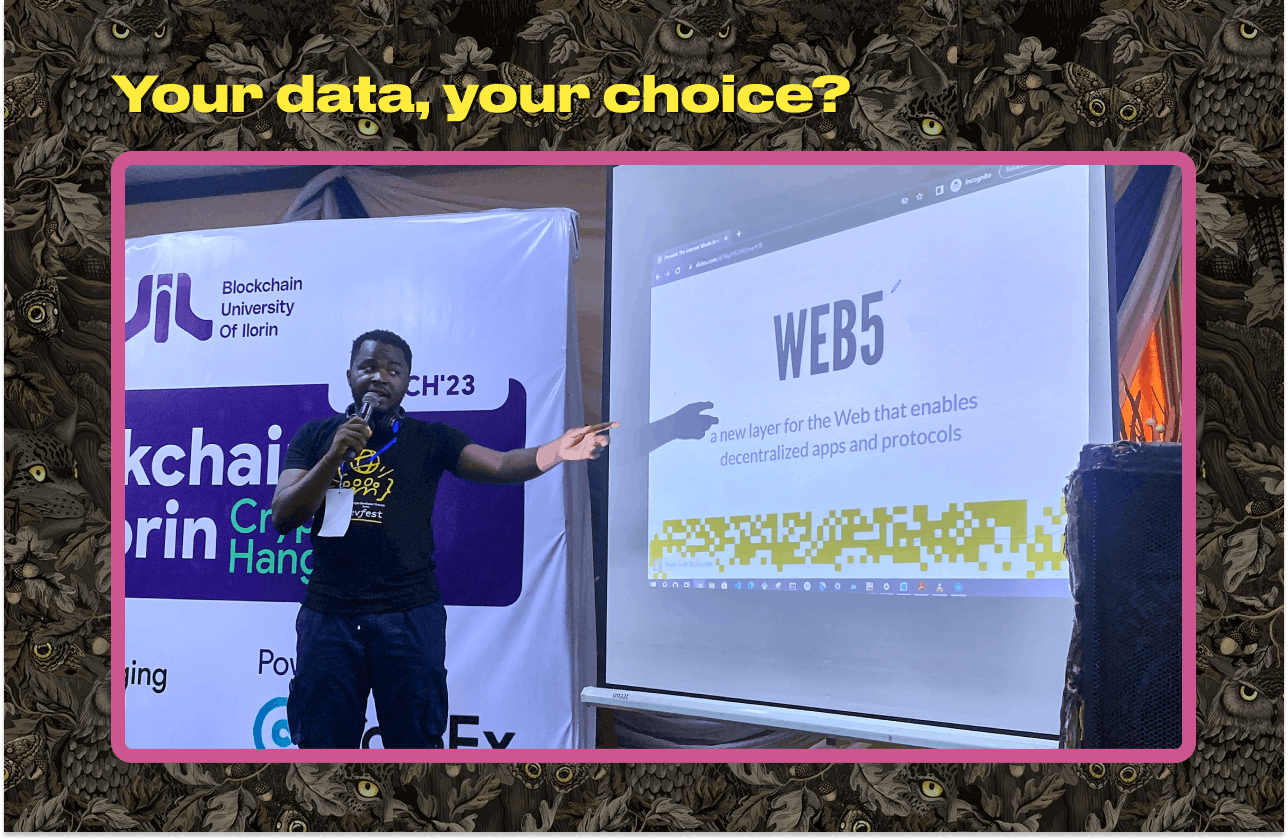
In this piece, my intention is to give you a breakdown of the entire idea behind Web5 without all the technical stuff and really get into the Whats, The Whys, and The Hows.
Hopefully, with all the powers and magic that be, I will be able to get you up to speed.
Before we begin...
Let's take a closer look at the current state of things. The Internet is a big, vast space of people and time. It existed way before the Twitter (X), Facebook, and Reddit of the modern world. The first version of the web, though, could have been more fun. Your current superpowers did not exist. You could not like, share, or even serve your hot takes on stuff you found on the Internet. It was one-sided, ruled by lords called WebMasters, and needed to evolve fast. That first version is what Web1 looked like.
Webmasters put up webpages. You and I consume them no questions asked, and share our 2 cents with friends and families that we can see and touch; there was no way to share that on the Internet.
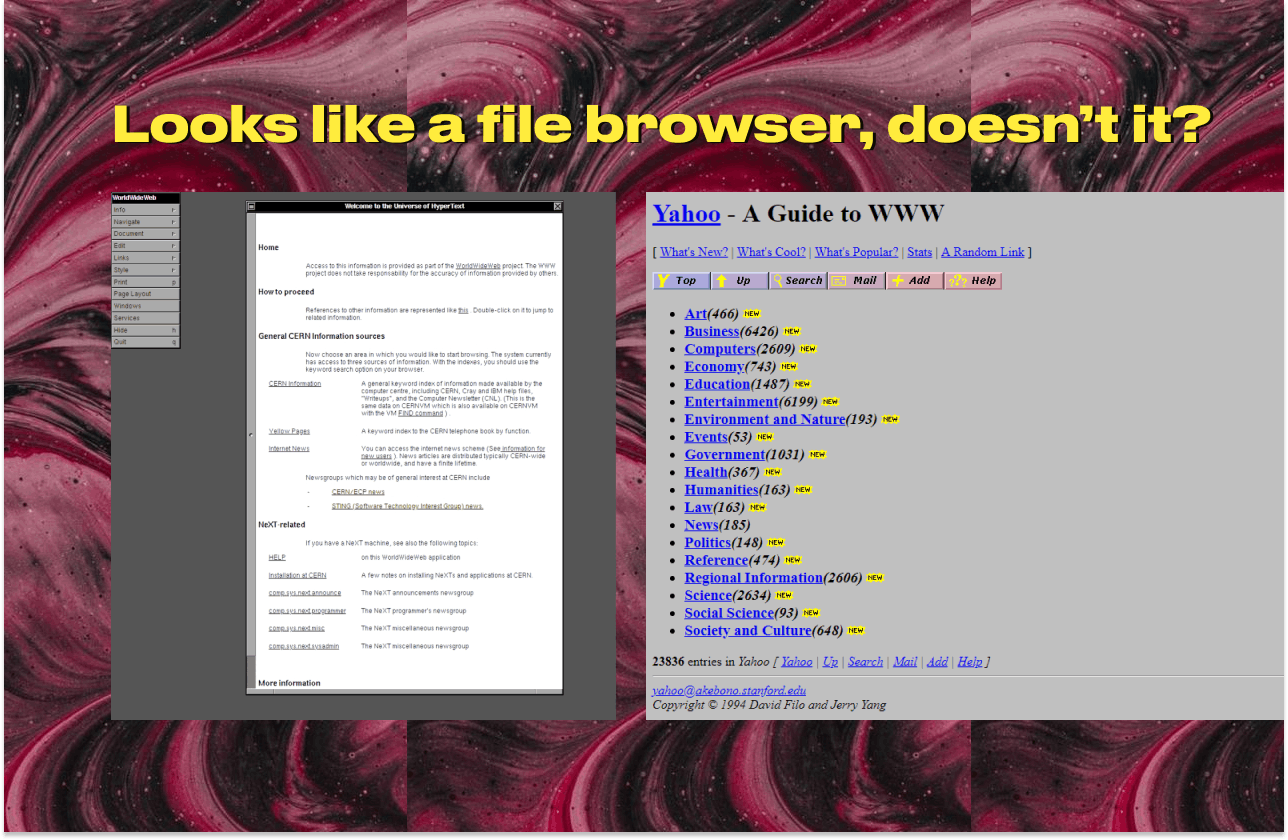
With the surge in innovation and technology and a thirst for more participation, Web2 has birthed what you have now. The Twitters, The Gmails, OnlyFans, and the whole damn web, for the most part.
When I share this post in the Twitterverse, I expect Twitterns (Twitter Users) to like, share, reply, and hopefully not drag me. That is much more fun than the previous way of things made possible because we now have a form of "Identification" on the web.
Every human can claim a "tag" that will separate his essence from the next person. With this tag, the new webmasters, Google, Facebook, Twitter, et al., can house the data of each person and then use that to enable participation and individuality.
This is what Angie Jones referred to as The Account Model of Web2.
Fast Forward a couple of new techs later and a few billions of revenue from selling your data to the highest bidder; we realised that we need more individual control over how the internet stores our data.
The question was, "How can I have more control over my data, content, and assets securely, boycotting all the new self-ordained webmasters?" The answer to this question was Web3. A fresh new form of the web enabled by the Blockchain where data is cryptographically locked, and every participator has complete authority over the store and intent of their data. The Blockchain is open and decentralised; for the first time, actual data ownership was activated.
With these newfound superpowers, we built a new empire that allowed cross-border inclusion in meaningful things like financial structures and digital ownership, which was a fluke in Web2. So what's next?
A Good Day to Web5...
Once upon a time, Twitter was just "Twitter" and not "X (formerly Twitter)". Twitter handled the @twitter user name on X and shared memes and stingy updates as the overlord pleased. That was a long time ago
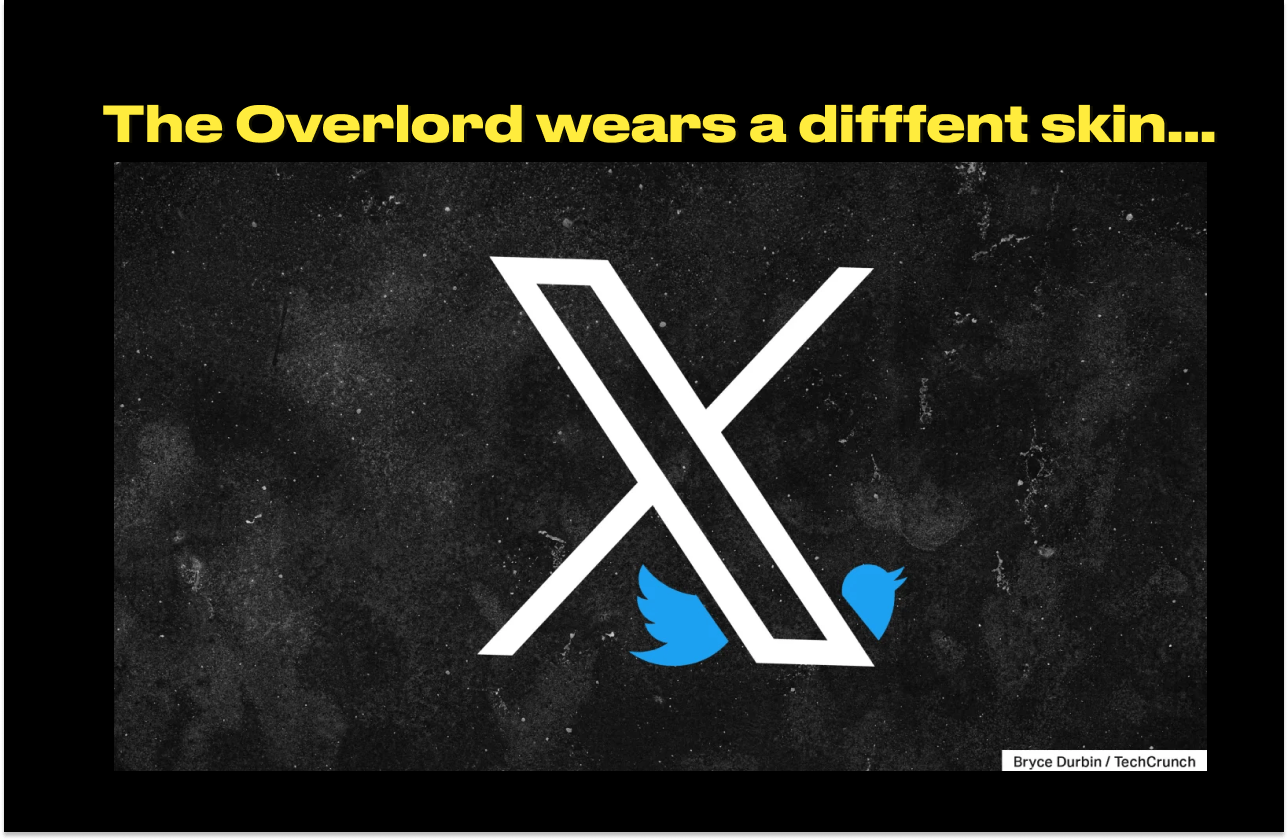
Twitter is rebranding to X and claiming the username @x is part of this new branding effort. Gene Huang handled the @x account. He owned it. He has built his brand around the single-letter username.
However, when the overlord X came calling and sought the username Gene has held on to for more than seven years, you can probably guess what happened next. X claimed the @x username from Gene and assigned him @x12345678998765. A massive drop in dopeness and a clarion call that Nothing on the Internet belongs to you, even your usernames and emails.
The very fabric of your online identity can be ripped away faster than a laser will slice through butter. Crazy!
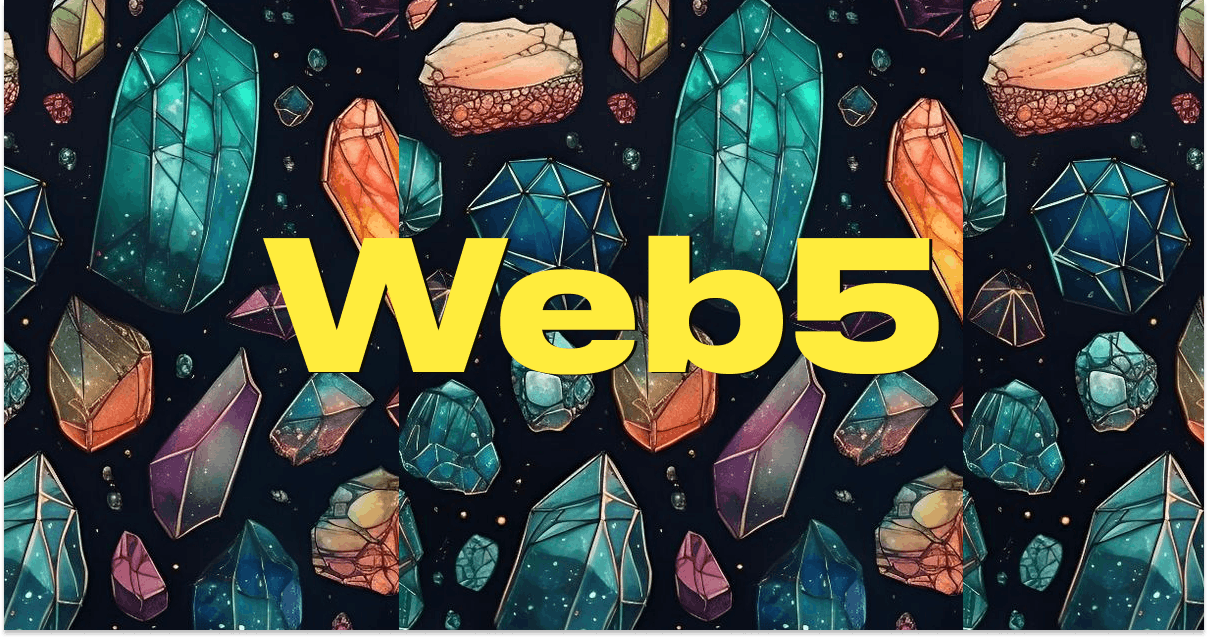
Hence, Web5. A fresh take on how we build web applications. An act of decoupling where data is not tied to the app we use. A shift towards more individualistic and total ownership of not just your data but also your identity.
What if you can move to a new social network and bring over your data from the previous social network? What if you can also migrate your identity and plug it in and out of services as you please? What if you can store your data and identity in your desired stores? What if? What if? Lots of What-ifs.
We are building towards that future with Web5, where the what-ifs of today are the reality of the day.
What's next...
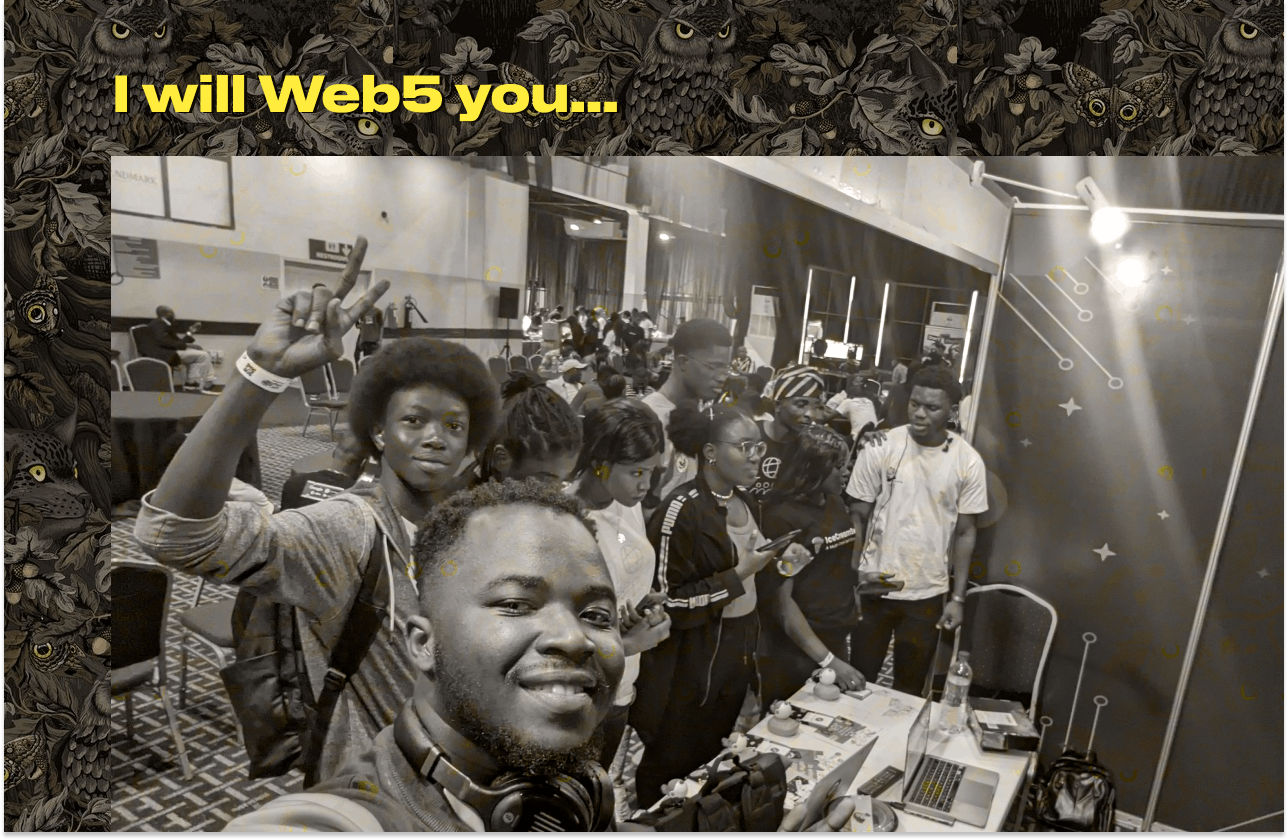
I made a promise to be as feeble as possible with this piece. The next part of this series will explore how web5 can make all this happen. You can like (tap multiple times) and share this piece. You should leave a comment; I also want to hear your thoughts. My goal remains pure and true: to do all I can to Web5 you.
Until the next time, remember, Nothing on the internet belongs to you.
Love, your favourite neighbourhood devrel.
Resources
📕 What is Web5?

